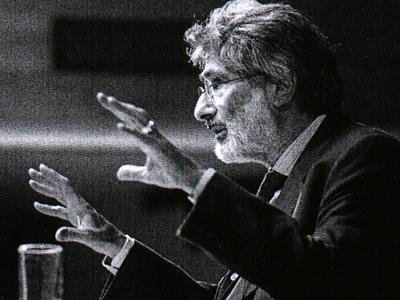The Arab Intellectual is Resting, Not Dead

Professor Said, and many such giants, were missed most during this current upheaval.
A novel by Abdul Rahaman Munif represented the pain of a past generation, and the aspiration of many to come. Language was timeless then. One would read what Tunisia’s Abu al-Qasim al-Shabbi wrote in the 1930’s and Palestine’s Samih al-Qassim much later and still feel that the words echoed the same sentiment, anger, hope, pride, but hardly despair.
Hey you, despotic tyrant, Darkness lover and enemy of life,
You scoffed at powerless people’s groans; And your hands are tainted with their blood.
You embarked on empoisoning the allure of existence and sowing prickles of grief in its horizons.
.. The flood of blood, will wipe you away, and the flaring gale will eat you up.
The “Arab Spring” resurrected the above words of al-Shabbi, but also those of others. It was believed that the peaceful protests of Arab nations was strong enough to “wipe away” the “darkness lovers,” but the battle proved more brutal than many had expected, or hoped. “The flood of blood” is yet to be contained. Several Arab countries – Iraq, Syria, Yemen and Libya – are “sovereign” by name, but practically divided, in politics, sects, tribes and geography.
But this hardly concerns the “spring” per se, but instead the Arab intellectual and what he/she represents or failed to represent.
What has become of the Arab intellectual?
– Read more: The Arab Intellectual is Resting, Not Dead – Ramzy Baroud, Middle East Eye










































0 Comments